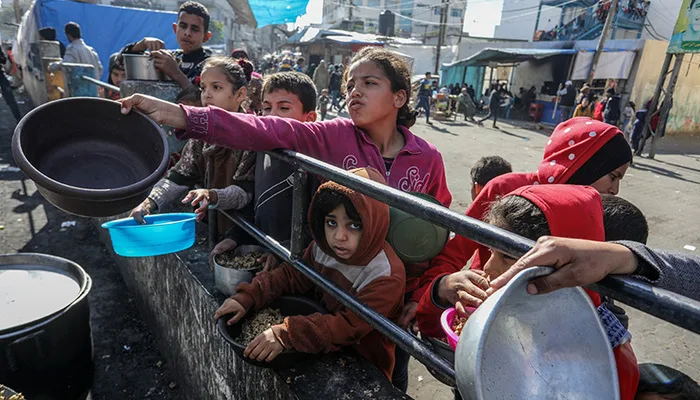Aid organizations are urging an immediate scaling up of humanitarian access to Gaza after Israel and Hamas agreed to a ceasefire-hostage deal. The agreement, expected to begin Sunday, aims to end 15 months of intense Israeli bombardment that has devastated the Palestinian enclave.
The United Nations Relief and Works Agency (UNRWA), Gaza’s primary aid group, stressed the need for “unhindered humanitarian access.” About 2 million people rely on UNRWA, with 1 million depending on its shelters for food and healthcare.
The UN children’s fund, UNICEF, called the ceasefire “long overdue.” At least 14,500 children have died in the conflict, with 17,000 separated from their parents. UNICEF plans to focus on treating malnutrition and vaccinating 420,000 children under five.
Aid Supplies Ready but Require Access
The World Food Programme (WFP) announced it has food supplies ready for over 1 million people for three months. However, the organization requires open and functioning border crossings to distribute aid effectively. The International Committee of the Red Cross (ICRC) stated it is prepared to assist with the deal’s implementation, having facilitated hostage and detainee releases in the past.
Read more: How Much Do Social Media Founders Use Social Media Themselves?
David Miliband, president of the International Rescue Committee, emphasized the urgency of increasing aid flow, including medicines, water, and food. “Conditions must be safe for civilians and aid workers,” he said.
Ceasefire Agreement Details
The deal includes a 42-day ceasefire, a prisoner and hostage exchange, and the withdrawal of Israeli troops. US hostages will be released in the first phase, while other hostages and detainees will follow. Humanitarian aid is expected to flow into Gaza during this period.
The Israeli cabinet will vote on the deal, with some members, like Finance Minister Bezalel Smotrich, expressing opposition. Prime Minister Benjamin Netanyahu has withheld comments until the details are finalized.
Reactions and Challenges
Hamas declared the agreement a significant victory, calling it a “crucial turning point.” Mediating countries, including the US, Egypt, and Qatar, pledged to ensure the deal’s full implementation.
Despite the agreement, Israeli airstrikes continued as negotiations unfolded. Strikes in Gaza City, Nuseirat, and Khan Younis killed 23 people and injured dozens.
Future Talks to Address War’s End
The deal’s second and third phases will be negotiated during the ceasefire. Talks will focus on further hostage releases, rebuilding Gaza, and ending the war permanently. US President Joe Biden highlighted the need for lasting peace and Gaza’s reconstruction.
Humanitarian groups, like the Norwegian Refugee Council, warned of famine-like conditions and called for lifting all restrictions on aid. Efforts to rebuild homes, schools, and hospitals must begin immediately.
Follow Day News on Google News, Instagram, YouTube, Facebook, Whats App, and TikTok for latest updates
